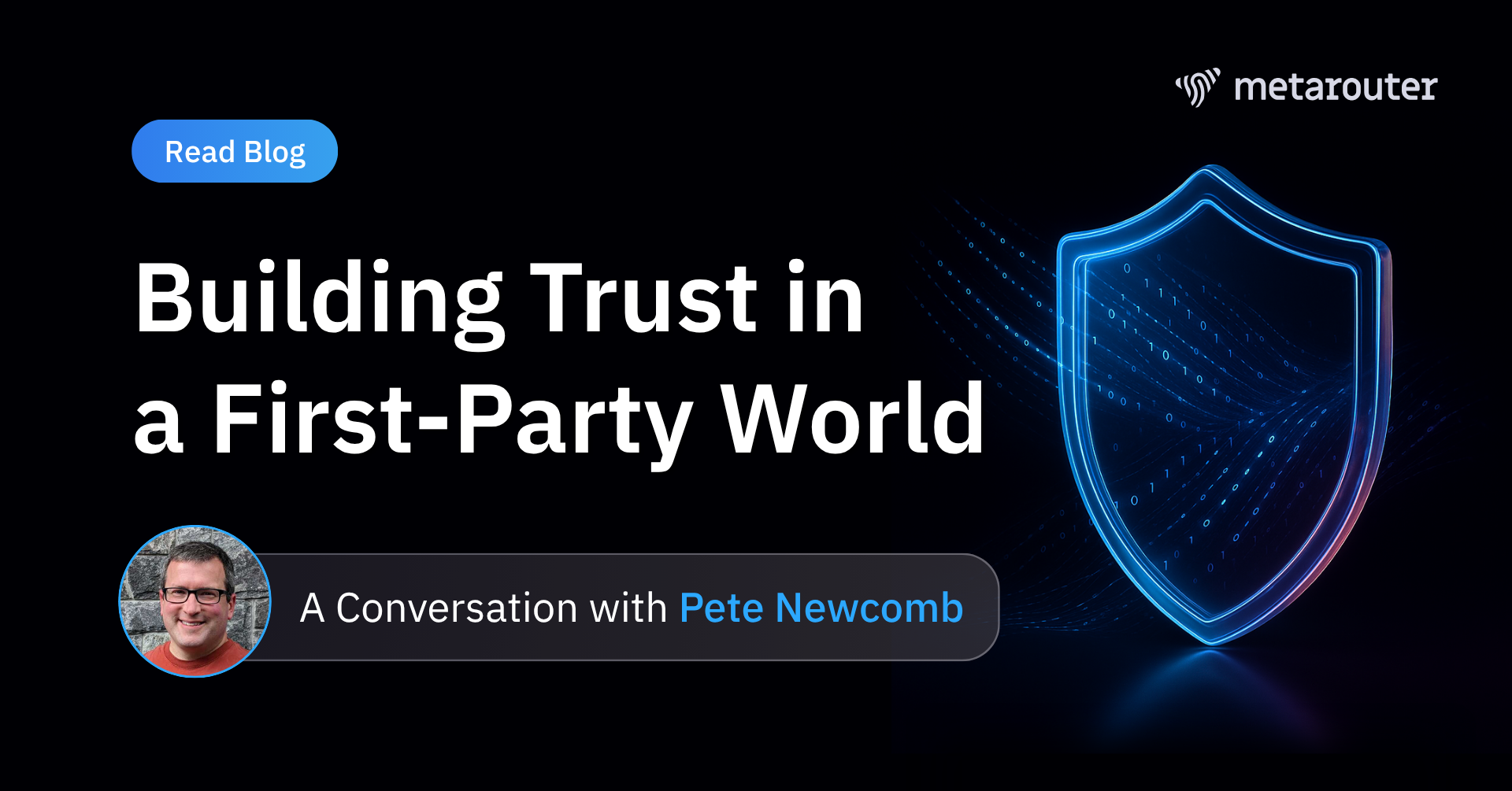Building Trust in a First-Party World: A Conversation with Pete Newcomb of MetaRouter
A behind-the-scenes look at Pete Newcomb of MetaRouter. How a former Walmart engineer is redefining first-party data, trust, and responsible customer experience at scale.

When you speak to technologists who’ve spent years architecting some of the most sophisticated data systems in the world, you expect complexity. You expect scale. You expect acronyms, frameworks, and the occasional whiteboard diagram. What you don't always expect is warmth, humility, and a genuine sense of stewardship for how technology impacts people’s lives.
That’s what you get with Pete Newcomb, Principal Engineer at MetaRouter.
Pete spent more than thirteen years inside Walmart Global Tech, helping to build the foundations that allowed the world’s largest retailer to move from an era of fragmented digital interactions to truly connected consumer experiences. In a company operating at breathtaking scale — millions of digital and in-store touchpoints, billions of signals — Pete worked on the plumbing. The unglamorous, un-Instagrammable layer of enterprise technology where trust is earned, data is shaped, and reliability is measured in decimals, not headlines.
But like many great technologists, Pete didn’t arrive here chasing titles. He arrived out of curiosity — and out of a quiet conviction that data, used responsibly, can strengthen the relationship between a business and the people it serves.
“I’ve always seen first-party data as a trust contract,” he tells me.
“People give you information because they expect you to treat it with respect and use it to serve them better. That’s a privilege.”
It’s a refreshingly simple framing for a space that often drowns in jargon and hype. Because while much of the industry still talks in terms of “targeting efficiency,” “signal loss,” and “browser deprecation,” Pete talks about human expectations.
In the real world, we expect the person who serves us every morning at the corner coffee shop to remember our name. We expect a favourite shop assistant to recognise us and ask how the kids are. We expect trust. And when a digital experience fails — when a brand forgets who we are five seconds after recognising us — we don’t file a technical ticket. We just feel… unseen.
MetaRouter’s mission, as Pete sees it, is to restore that natural human continuity in a way that respects privacy, honours consent, and scales securely — without outsourcing identity and trust to the ad-tech ecosystem.
“I loved what we built at Walmart,” he says. “We saw first-hand that investing in your own data foundations isn’t just a technical strategy — it’s an integrity strategy. It’s ownership. It’s creating a system where the customer and the retailer have a direct relationship — with no one in the middle deciding how it should work.”
It’s no surprise, then, that when long-time collaborator Nikhil Raj called him about MetaRouter, the mission resonated instantly. MetaRouter is effectively productising a philosophy that giants like Walmart learned the hard way: the future belongs to companies that own the customer relationship and the data infrastructure behind it — not those renting it from an ad platform.
But Pete doesn’t speak like someone who wants to “win a category” or “disrupt an industry.” He speaks like someone who wants to protect a promise.
Technically, MetaRouter’s story is impressive enough. Server-side data capture. Identity stitched across devices. Consent as a first-class citizen. Bot filtering. Data loss measured in basis points. Clean integration layers where the brand controls what leaves the castle and when.
But the more compelling story — and the one Pete returns to again and again — is the values layer.
“It’s very difficult to do this the right way,” he admits. “But doing it the right way matters. If we’re going to rebuild digital trust, it has to start with the foundational pipes.”
There’s a parallel here to the early days of the sustainability movement — when the smartest operators realised that “greenwashing” wasn’t the strategy; measurable operational discipline was. In the same way, first-party data isn’t the buzzword — governance and technical truth are.
MetaRouter, in Pete’s telling, isn't an alternative to cookies — it’s an upgrade to a healthier digital economy. One where companies earn the right to know their customers, and customers see the benefit clearly, rather than feeling harvested.
As we wrap up, he reflects on why, after more than a decade inside one of the world’s most advanced retail data organisations, he chose a startup.
“Because this work isn’t done,” he smiles. “Walmart built it internally. MetaRouter is taking it to everyone else.”
In a landscape obsessed with scale, speed, and precision, it’s striking that the word Pete uses most often is trust. Not a technical term. Not a marketing slogan. A human one.
And perhaps that’s the real unlock. When data isn’t just infrastructure — but a promise — the future suddenly looks much more personal.